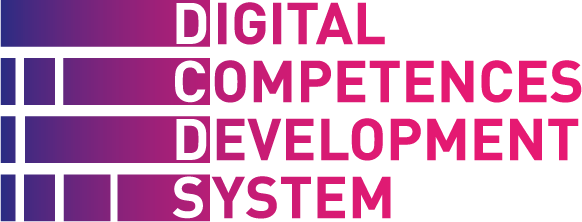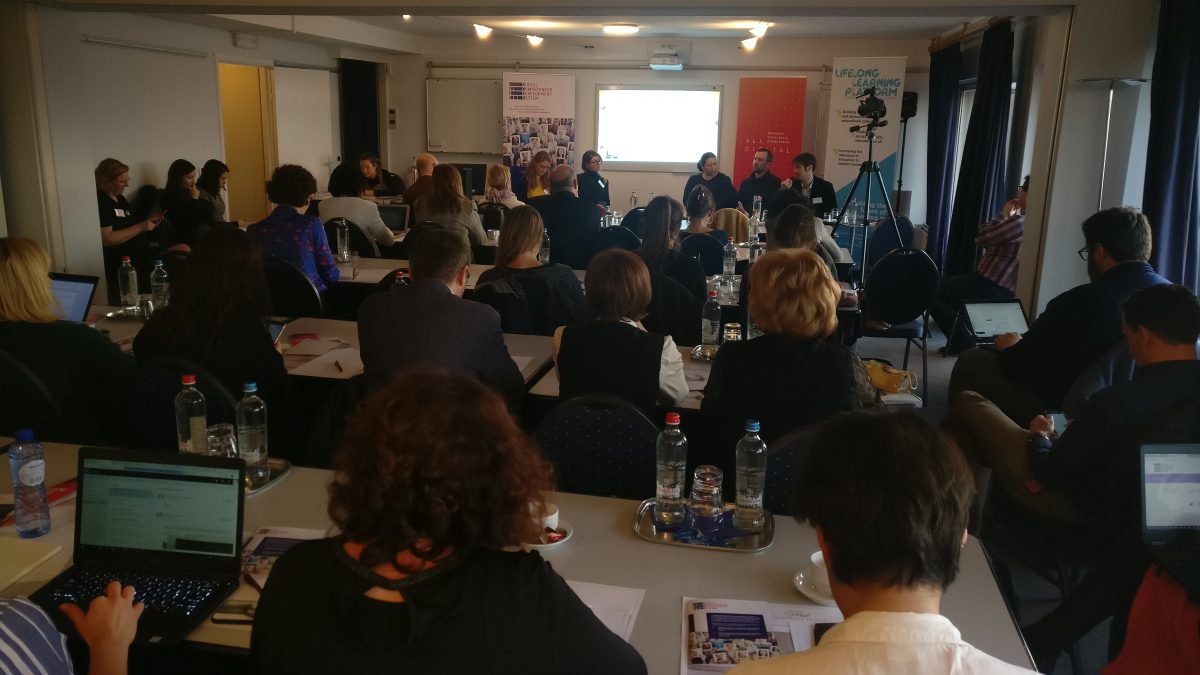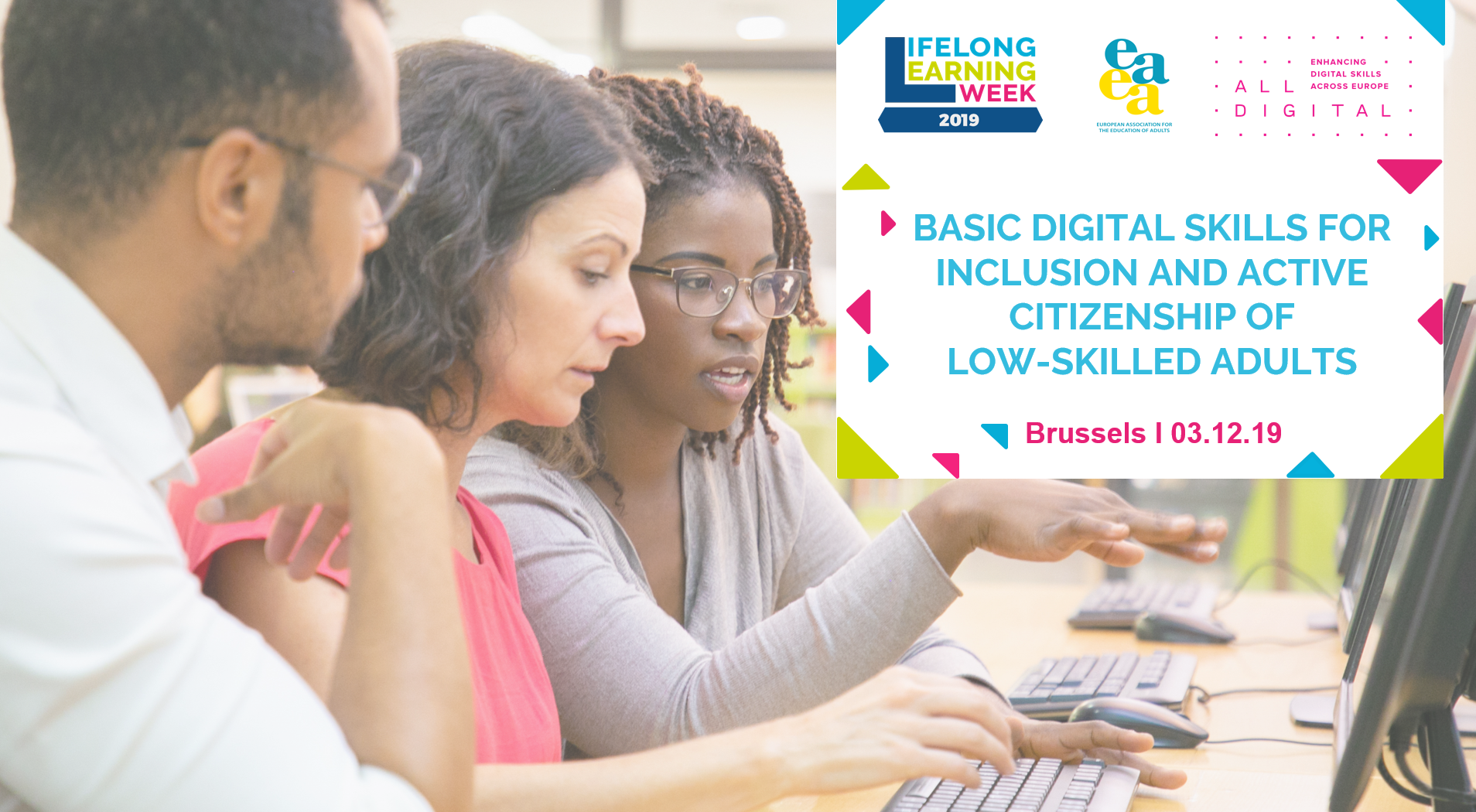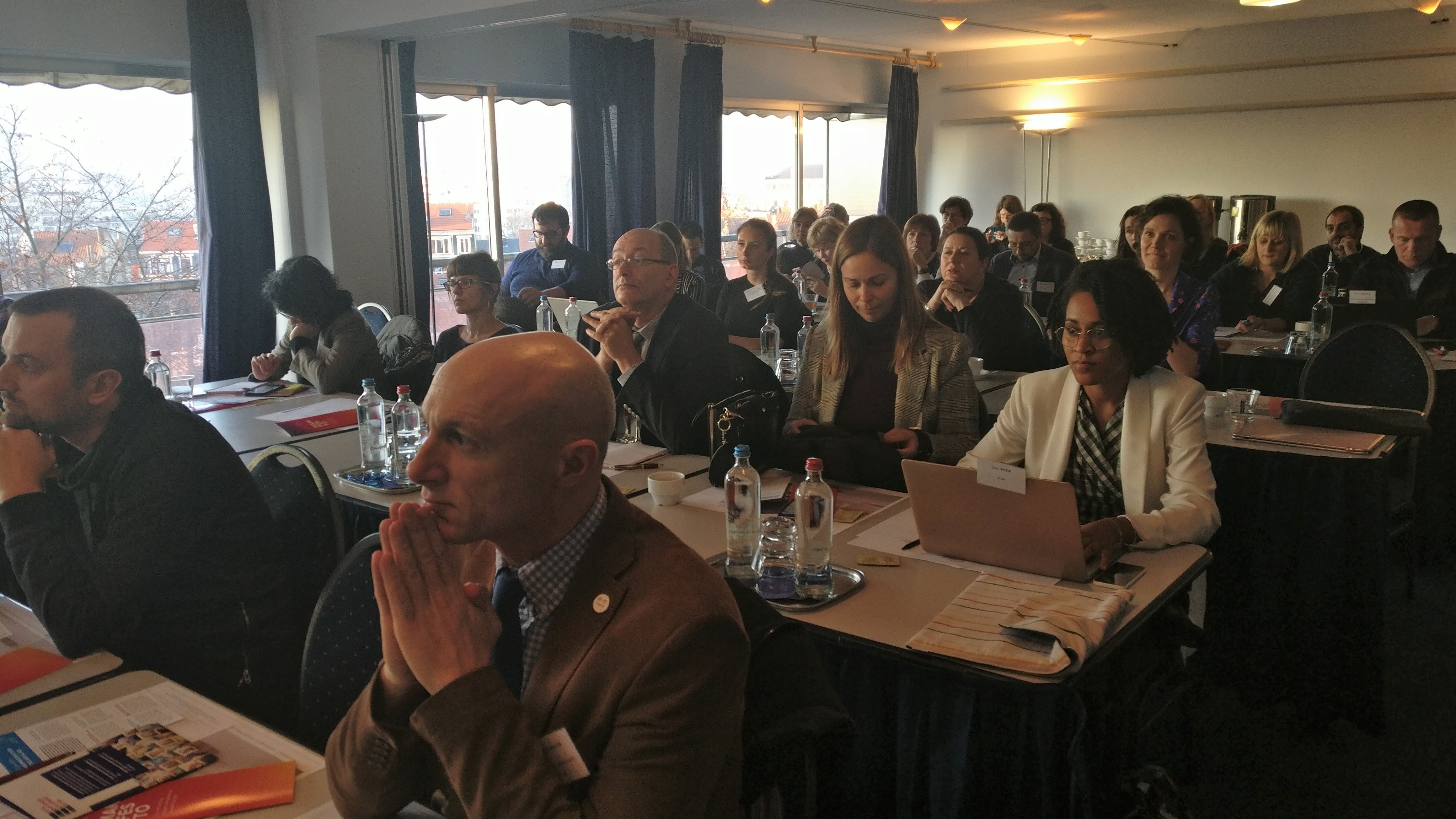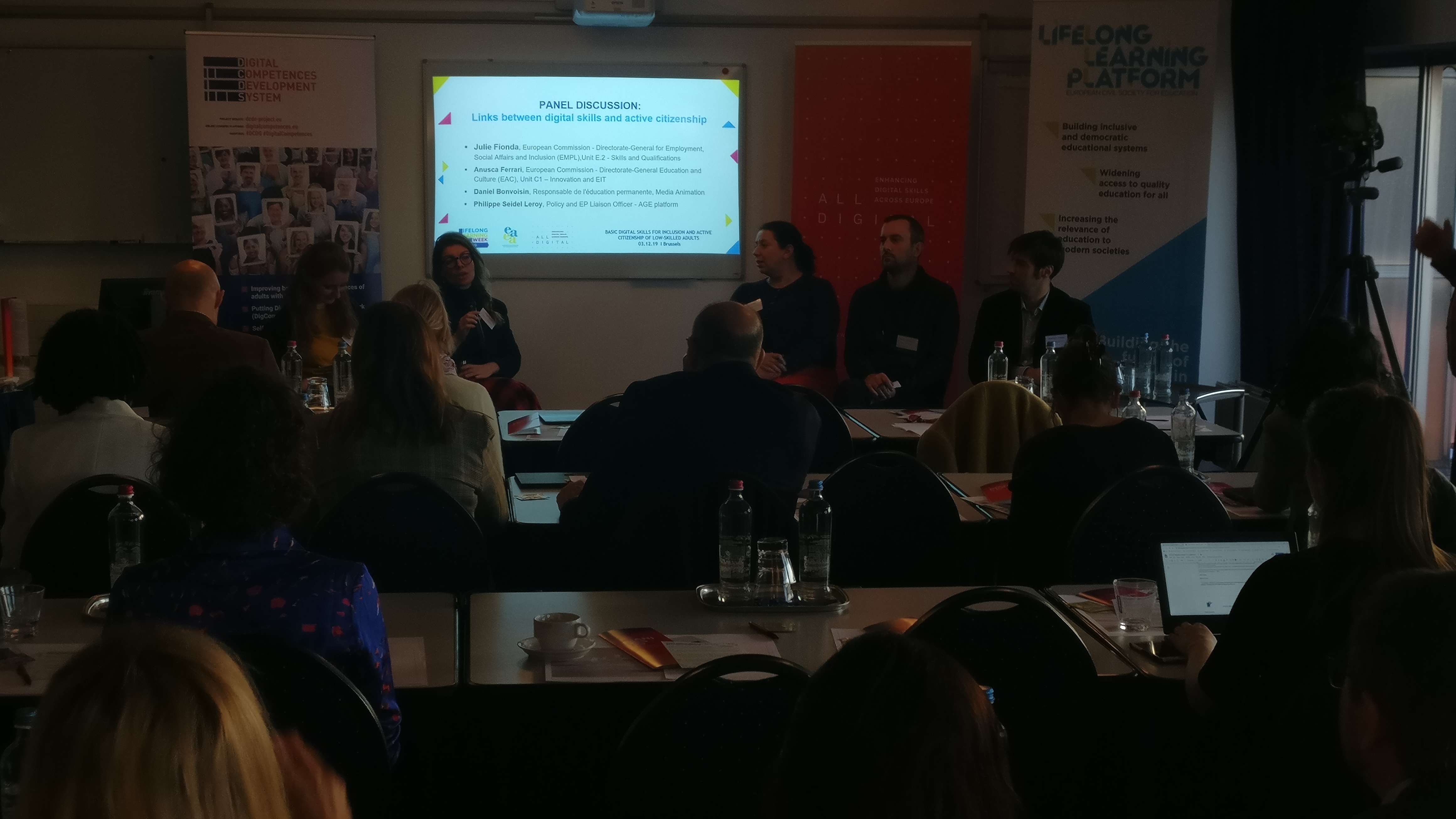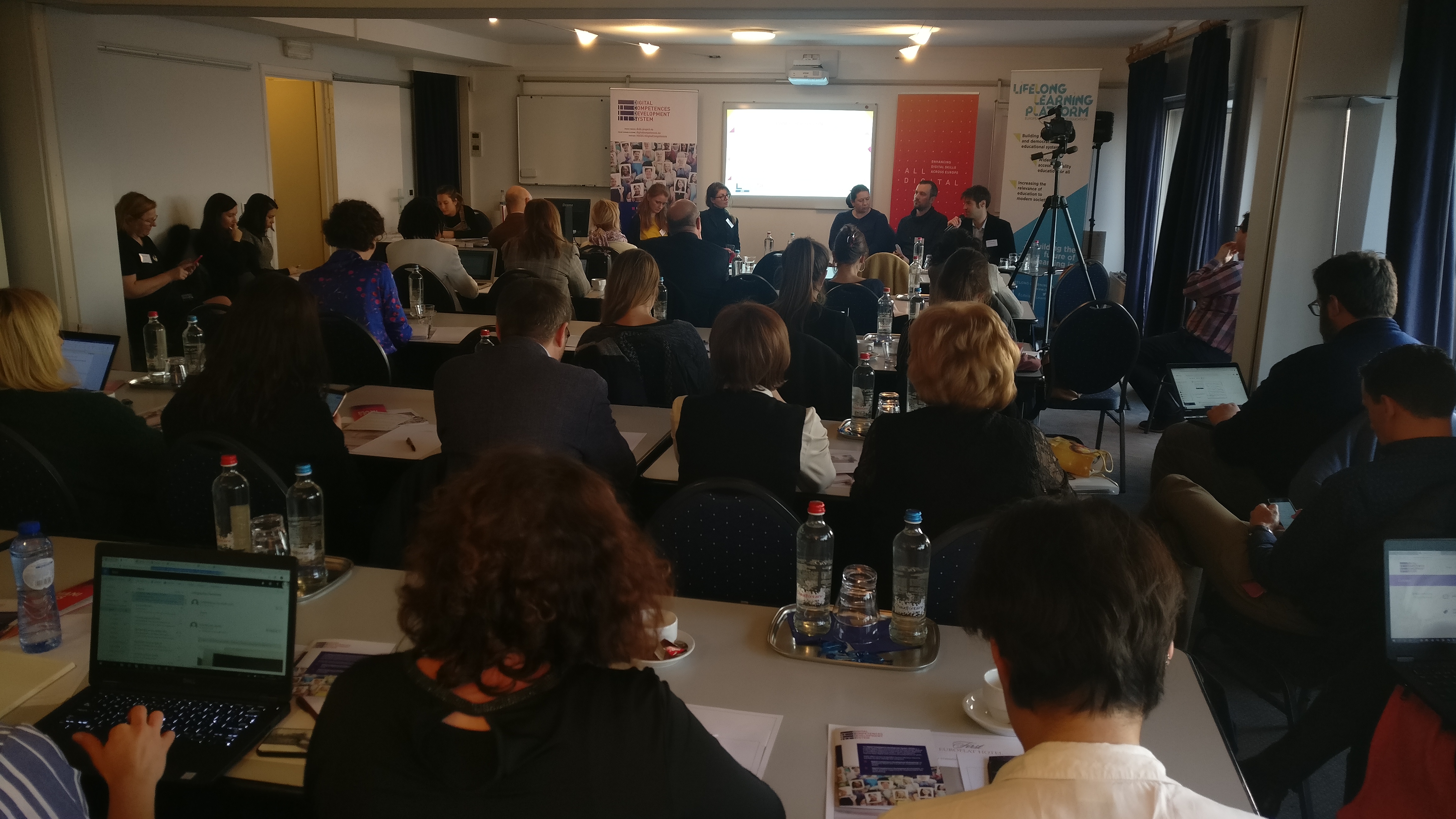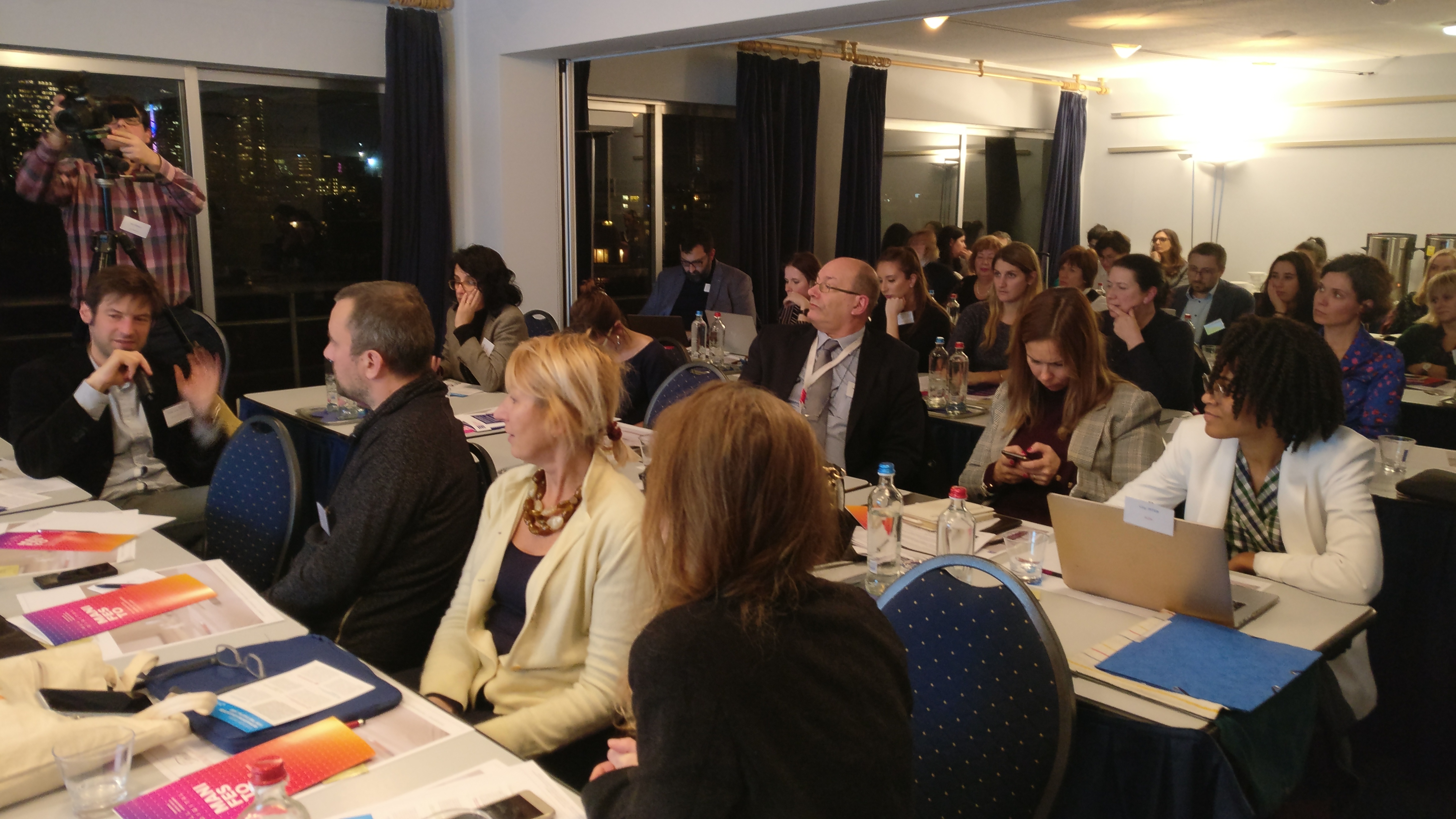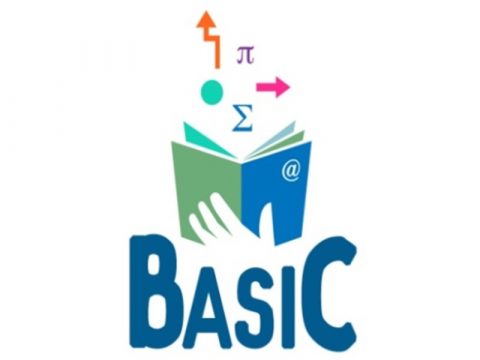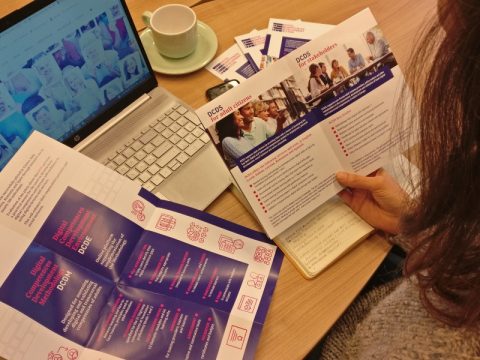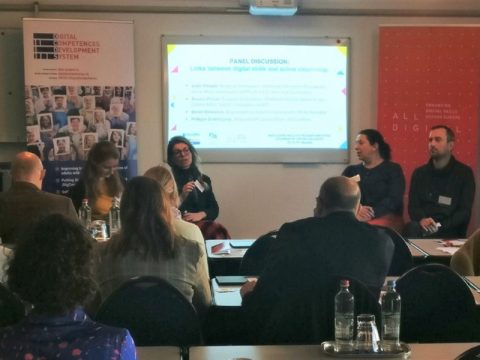On 3 December 2019, ALL DIGITAL and European Association for the Education of Adults (EAEA) organised a policy workshop in the framework of the Lifelong Learning Week 2019.
Digital inclusion is nowadays key to social inclusion and active participation (in the community, in the city, in the labour market, in education, in leisure time activities, in sports, etc.). Yet, according to Eurostat, 43% of Europeans do not have basic digital skills. But do we know what this really means? Who are these 43%, and what are those basic skills?
The Digital Competence Framework (DigComp) for citizens has been around for some time now, trying to define and explain the skills needed by all citizens to function in the digital society, but it is surprisingly little known to politicians and other stakeholders beyond the digital education field.
We believe that providing adults with a personalised training based on their specific needs is an effective way to foster their digital skills and bring them at least to a basic level that would allow them to use online services, express their opinion and access reliable and diversified information. Improving their digital skills will thus empower them to play an active role in society, access and progress in the labour market, and engage in further education and training in a lifelong learning perspective.
The workshop brought together policymakers from the European Commission; regional authorities; VET and adult education providers from different countries, civil society organisations caring for adult learners and academia. They discussed about the importance of basic digital literacy for active participation in society and the role of the different stakeholders in increasing the number of adults with basic digital skills.
The workshop started with the panel discussion on the links between basic digital skills and active citizenship with policymakers and adult education practitioners:
- William O’Keeffe, European Commission – Directorate-General for Employment, Social Affairs and Inclusion (EMPL),Unit E.2 – Skills and Qualifications
- Anusca Ferrari, European Commission – Directorate-General Education and Culture (EAC), Unit C1 – Innovation and EIT
- Daniel Bonvoisin, Responsable de l’éducation permanente, Media Animation
- Philippe Seidel Leroy, Policy and EP Liaison Officer, AGE Platform Europe
Panelists addressed questions, such as what policies are currently being implemented at European level to support the development of basic digital skills for adults, whether more research is needed on skills requirements and different groups of the adult population to better tailor the measures, and what the role of different stakeholders is.
Anusca Ferrari from DG EAC mentioned that the new president of the EC has tasked the new Commissioner for education with the revision of the Digital Education Action Plan. The Plan is currently focused mostly on formal education, but the foreseen update is expected to go beyond formal education to address young and adults alike.
Julie FIONDA from DG EMPL complemented her education colleague by mentioning the “Upskilling pathways” initiative, which recognizes digital skills as the third basic skills that everyone needs to flourish in life, together with literacy and numeracy. She assured that this political commitment to basic digital skills will continue and will be reflected in the new Skills Agenda coming up in 2020. She also mentioned individual learning accounts as a main tool that the commission will focus on.
Philippe Seidel Leroy reminded that the “Upskilling pathways” is focused mainly on people of the working age, while many people over 50+ are left behind. DG EMPL assured that the individual learning accounts should be for everyone and not only for employment purposes. He also noted that more research is needed, but only only on high-tech – low tech solutions and basic skills needs should also be better understood.
The EC in general highlighted the European Semester as a tool that has to encourage reforms at the member state level.
The second part of the event was devoted to the digital competence development system as a comprehensive system for digital skills training and validation. The consortium presented project results, lessons learned and DCDS policy recommendations, followed by the comments from the reviewers and debate with the audience:
- Peter Palvolgyi, ALL DIGITAL (project context)
- Francesca Operti, EAEA (policy recommendations)
- Susana Oliveira, LLLP (commenting on the policy recommendations)
The recommendations are addressed to policymakers at European, national/regional and local level and include clear policy objectives for increasing the number of adults with basic digital skills. Learn more about the policy recommendations and feedback from reviewers here
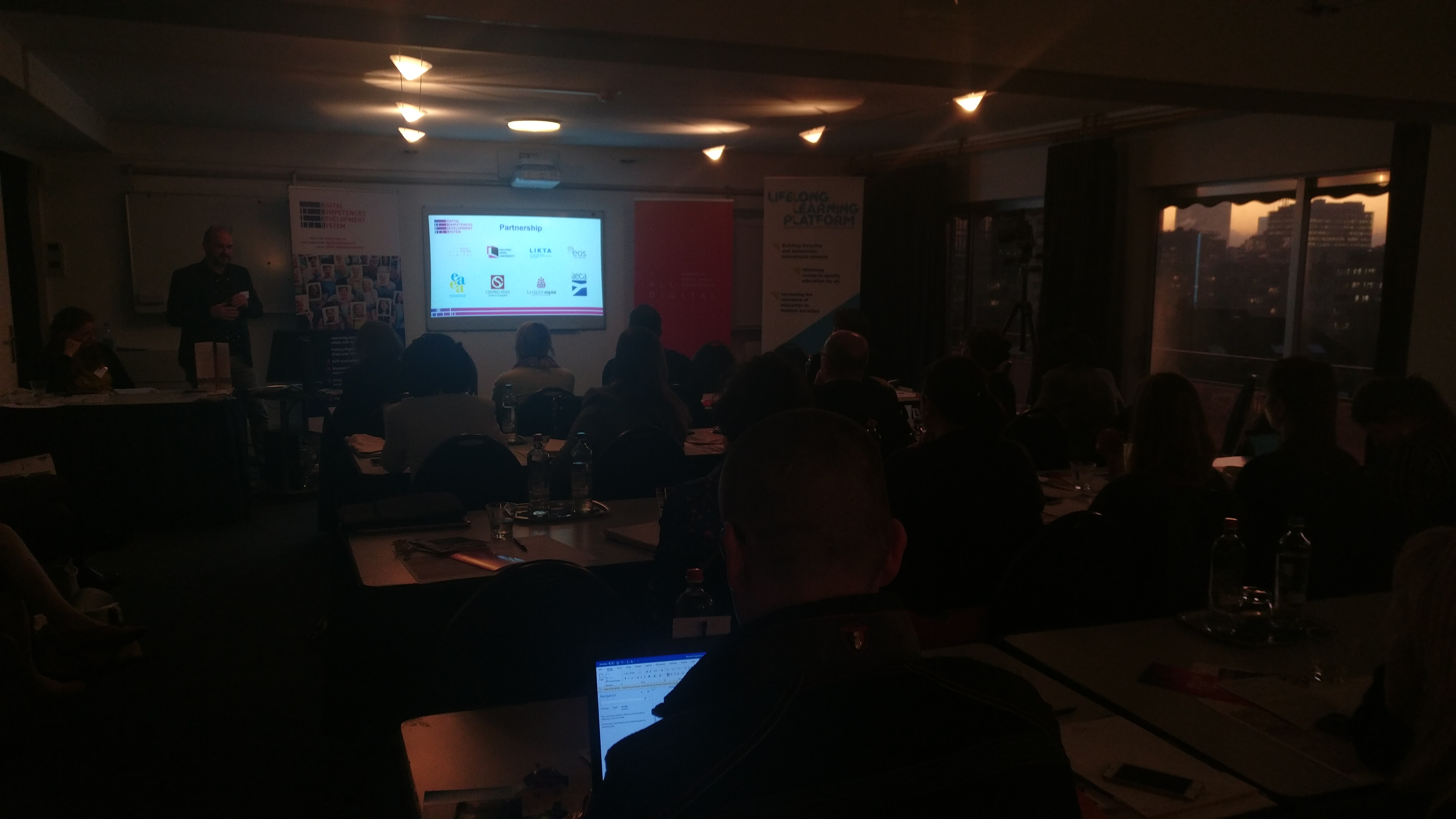
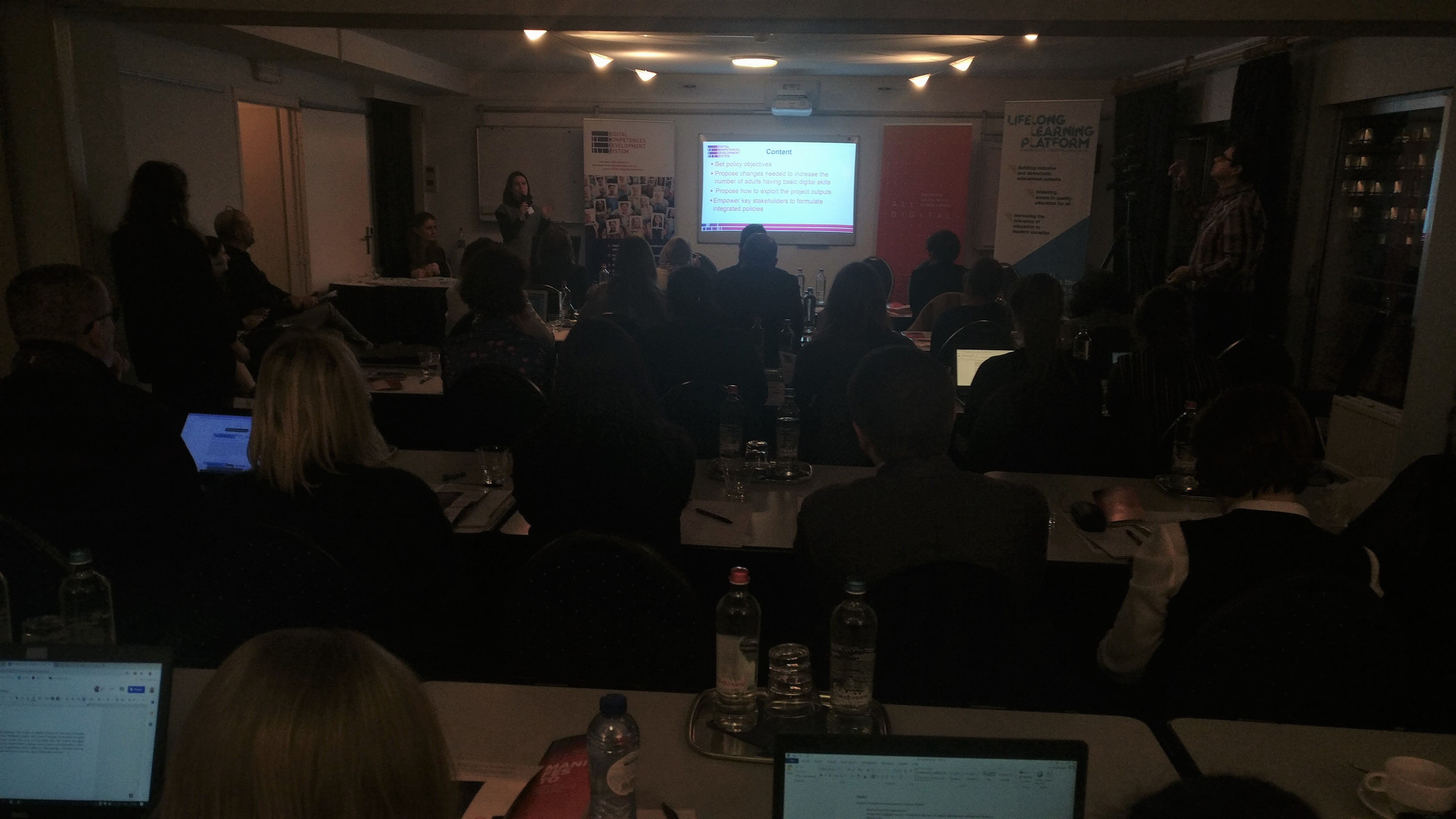
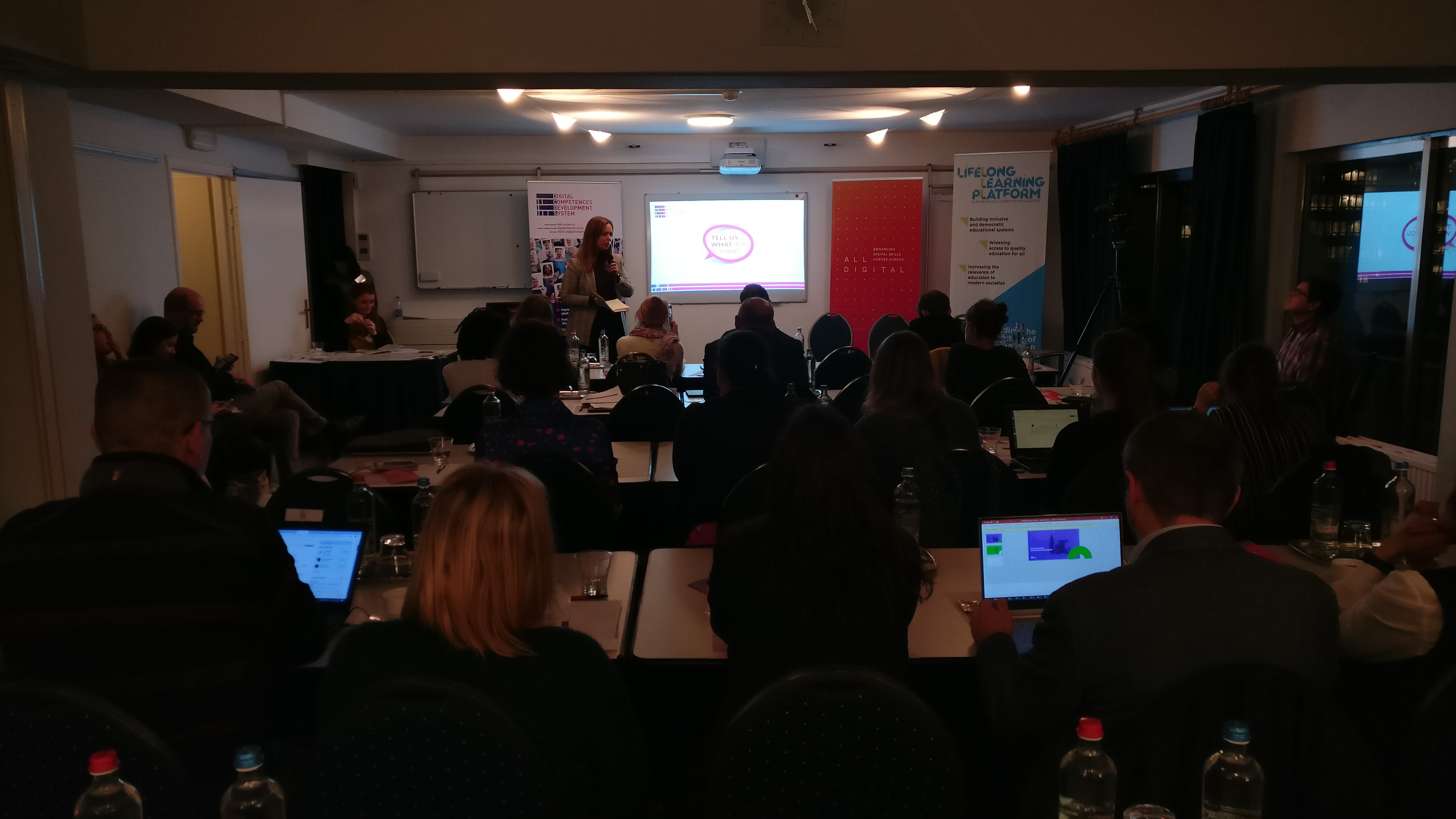
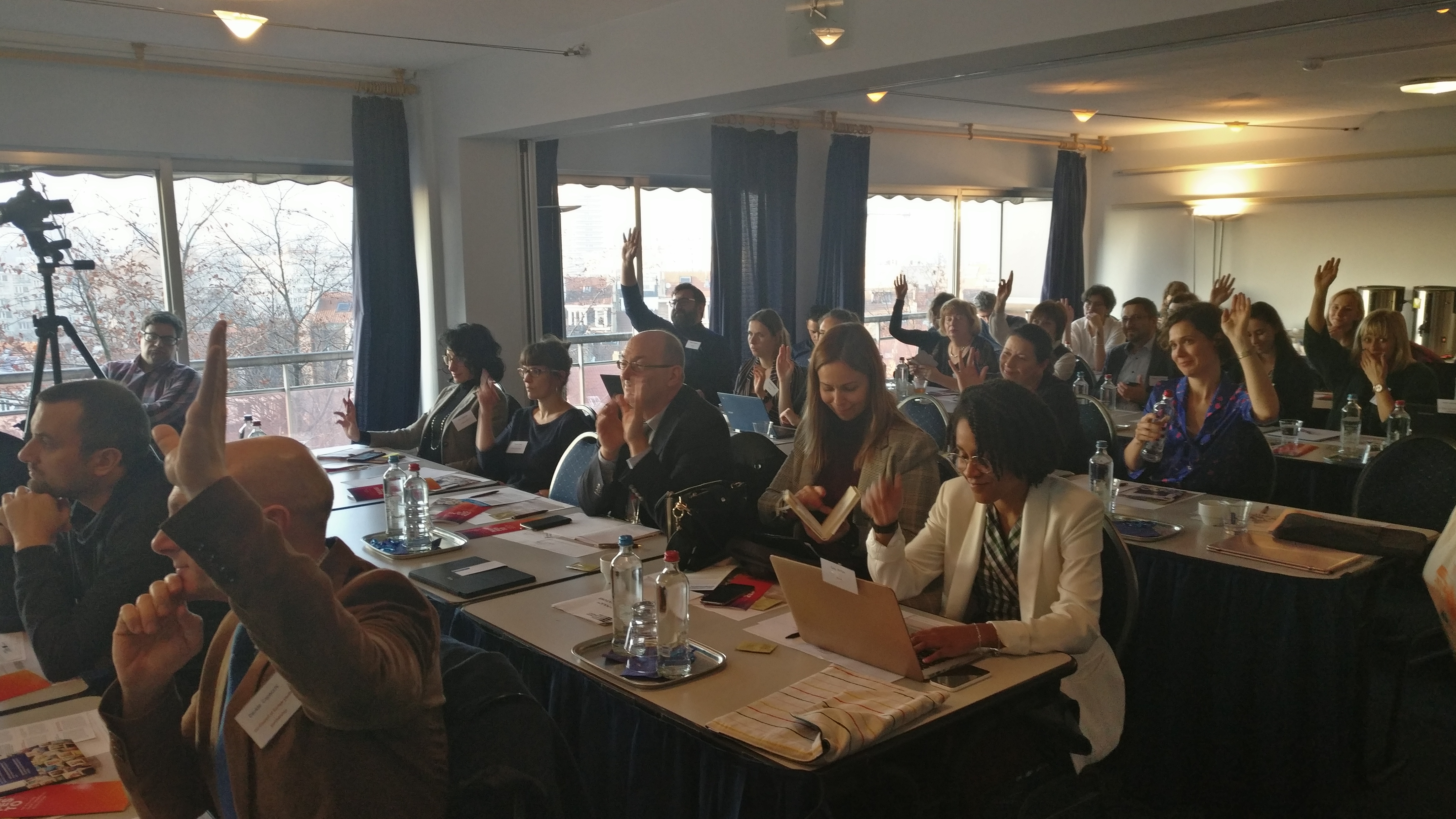
>> Watch the full event live streamed on ALL DIGITAL YouTube Channel.
>> Below you will see the presentation of the DCDS project and policy recommendations.
